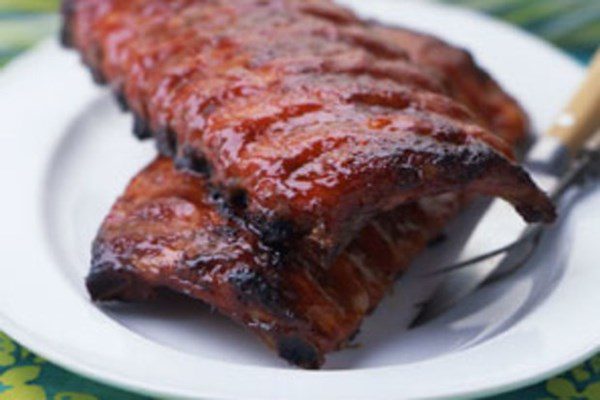The history of barbecue
July 4, 2025 by DarcieThis weekend, grills across the US will be blazing with a multitude of meats, vegetables, and fish set atop the racks. Some will enjoy quickly cooked items like hot dogs and hamburgers, but in many households (mine included), low and slow barbecuing will take place. The roots of barbecue date back centuries, and its modern day incarnation owes a lot to indigenous peoples of the Carribbean.

While cooking meat over an open flame happened as soon as humans conquered fire, the word barbecue and the technique associated with it today has roots in the islands of the Carribbean, where societies like the Taínos constructed wooden frames on which various animals were cooked over an open flame. The Taínos word for the structure was ‘barabicu’, so it is easy to see how this got translated into barbecue and barbacoa by Spanish conquistadors who brought the cooking technique back to Europe.
It never ceases to amaze me that so many of the foods enjoyed across the globe today have roots in the New World. Tomatoes, potatoes, corn, winter squash, and climbing beans may be ubiquitous worldwide, but they were unavailable to the Old World until the 1500s. For eons, the foods of the two worlds evolved separately until the famous voyages of the Vikings and Spaniards caused a collision between them. This had devastating consequences for the native populations while Europe reaped the bounty of the Americas and its rich foodways – something to ponder when you fire up the grill this weekend. The meal my family will be eating today owes nearly everything to the New World – barbecued ribs, potato salad, cornbread, and black raspberry sherbet.
Categories
- All Posts (7144)
- Antipasto (2236)
- Author Articles (253)
- Book News (948)
- Cookbook Giveaways (1003)
- Cookbook Lovers (265)
- Cooking Tips (118)
- Culinary News (301)
- Food Biz People (561)
- Food Online (805)
- Holidays & Celebrations (280)
- New Cookbooks (156)
- Recipes (1531)
- Shelf Life With Susie (231)
- What's New on EYB (138)
Archives
Latest Comments
- Meredythhaas on Persiana Easy – Cookbook Giveaway
- demomcook on TL;DR
- dmass on TL;DR
- Indio32 on TL;DR
- MollyDT on A love letter to Sift by Nicola Lamb with a giveaway
- colleenmv on Pull Up a Chair – Cookbook Giveaway
- colleenmv on So Easy So Good Cookbook Giveaway
- colleenmv on The Salad Lab Cookbook Giveaway
- colleenmv on A love letter to Sift by Nicola Lamb with a giveaway
- colleenmv on Potluck Desserts Giveaway, Quick Bites and Recipes